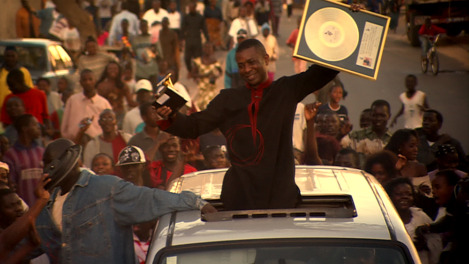Youssou N’Dour: I Bring What I Love
Youssou N'Dour, Peter Gabriel, and Moustapha Mbaye star in a film written and directed by Elizabeth Chai Vasarhelyi.

Youssou N’Dour: I Bring What I Love is neither a straightforward concert film nor the triumphant tale of how Senegalese singer Youssou N’Dour came to perform with the likes of Peter Gabriel and Neneh Cherry. The story this documentary tells is far more complex, showing us not only how music can bridge cultural divides, but also presenting us with a more nuanced portrait of Africa, Muslims, and “the Islamic world” than Western viewers typically get.
To place N’Dour in context for those unfamiliar with his music, the film features footage of him sharing the stage with Gabriel and hobnobbing with U2’s Bono, but these feel like distractions. The main story is N’Dour’s quest to create an album honoring the revered figures of his Sufi Muslim faith – sacred music that can be performed during Ramadan, the Muslim holy month, during which N’Dour has traditionally abstained from performing. When he finally takes the resulting album public in an effort to change widespread negative perceptions of Islam, N’Dour plays the music to enthusiastic multiracial audiences in Europe and the U.S., but ironically the work is rejected in his native country.
N’Dour is clearly the hero of this film, but his humanity and complexity also shine through – he’s an observant Muslim who smokes, a grown man and father who struggles to communicate with his own dad. Even if “world music” isn’t your thing, the reverence and emotion in N’Dour’s work are moving.



